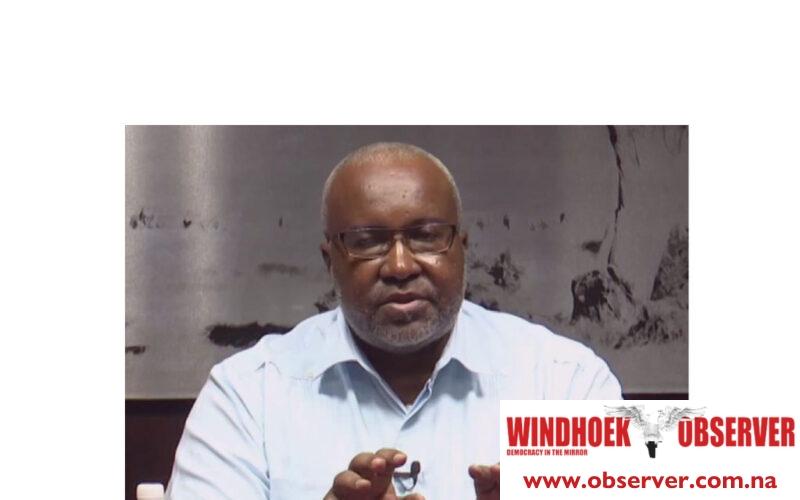Niël Terblanché
The minister of agriculture, fisheries, water and land reform, Mac Hengari, has laid out a broad agenda for the ministry’s direction over the next five years, calling for committed teamwork and focused implementation to realise national development goals.
Speaking during a meet-and-greet with officials and staff in Windhoek on Wednesday, Hengari described his appointment by President Netumbo Nandi-Ndaitwah as an immense, yet exciting responsibility.
He added that he was delighted to have been granted the opportunity to serve the nation through a portfolio that touches the core of rural development, food security and economic sustainability.
According to Hengari, more than 70% of the population derive their livelihood either directly or indirectly from the agriculture sector, making it a vital instrument for improving self-sufficiency.
The minister outlined ten key focus areas, ranging from accelerating agricultural production to expediting land reform.
Among them is the development of irrigation infrastructure and full-scale operationalisation of existing green schemes.
He also stressed the importance of policy reforms aimed at improving technical capacity among farmers and ensuring access to essential agricultural inputs across all scales of farming.
Regarding the fisheries sector, Hengari said: “We can no longer think of our fish merely as raw commodities. We must position ourselves to add value through processing, packaging, and innovative product offerings.”
He added that this approach would generate employment and ensure that every fish caught contributes to our shared prosperity.
He said the ocean is more than just a vast expanse of water.
“It is a lifeline for the rich biodiversity of marine life, supporting our culture, providing livelihoods for countless Namibians, and nurturing the very economic framework of our nation,” he said.
Another pressing priority includes expanding water supply infrastructure.
“We must ensure that water is available for livestock, settlements and industrial development, all of which are vital for sustaining communities and driving economic progress,” he said.
The minister specifically pointed to projects such as the second desalination plant in the Erongo region and the utilisation of the Ohangwena aquifer and the Neckartal Dam.
Land reform also features prominently in the minister’s roadmap.
He committed to fast-tracking recommendations from the 2nd Land Conference and called for legislation that enables leaseholders and resettled farmers, especially in communal areas, to access finance.
An ancestral land policy is also expected to form part of this process.
Deputy minister Ruth Masake, speaking at the same event, repeated the call for collaboration and focus.
“Our gathering here marks not just an opportunity for us to meet you all for the first time, but a commitment to collaborate closely in shaping our country’s future,” she said.
She stressed the importance of a performance-driven culture within the ministry and the need to respond to the voices of civil society, particularly grassroots organisations.
“Ultimately, our goal is to improve the living standards of all Namibians while ensuring maximum outputs with the limited financial resources allocated to our sectors,” she said.
Both the minister and his deputy stressed the importance of unified efforts and strategic execution.
“Let us embrace this journey with a sense of common purpose and dedication as we strive to improve the livelihoods of our people and build a prosperous Namibia for all,” she said.




